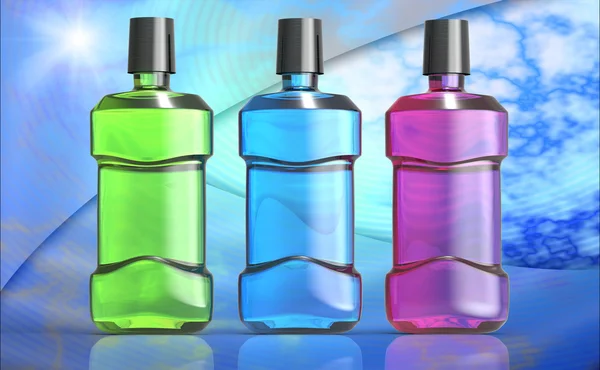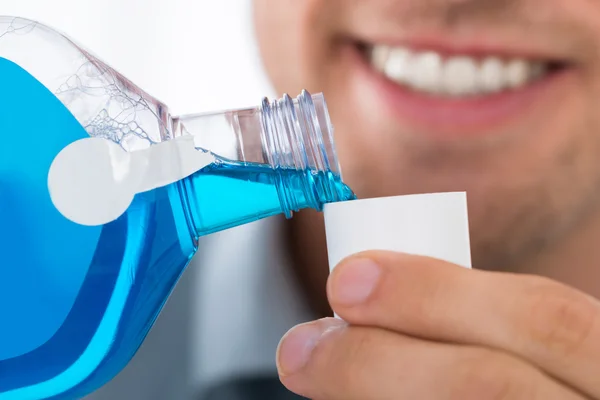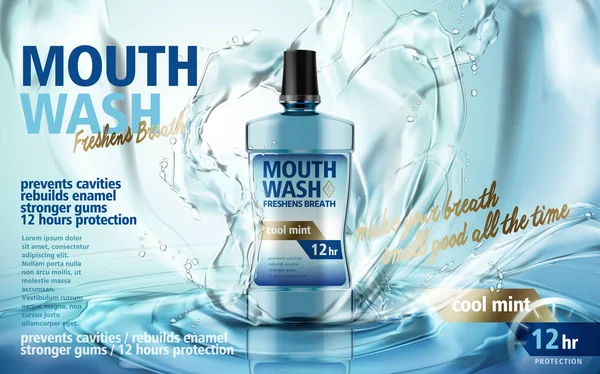Wondering “How often should you use mouthwash”? Then here’s every detail you need regarding your questions.
While regular brushing and flossing are essential, many people wonder about the role of mouthwash in their oral care routine. Mouthwash, also known as mouth rinse, can be a beneficial addition to your dental regimen when used correctly. However, it’s essential to understand how often to use mouthwash and be aware of certain individuals who should avoid it altogether.
Wait! Before we venture into the main subject of this article, let’s look at the types of mouthwash available in the market and in stores.
Types of Mouthwash

When it comes to mouthwash, there are different types available, each serving specific purposes in maintaining your oral health. Understanding these types can help you choose the most appropriate one for your needs:
1. Cosmetic Mouthwash
Cosmetic mouthwashes are primarily designed for temporary relief from bad breath, also known as halitosis. They often contain pleasant-tasting ingredients that mask odor temporarily. However, it’s important to note that cosmetic mouthwashes do not provide long-term oral health benefits beyond a fresher breath sensation.
2. Therapeutic Mouthwash
Therapeutic mouthwashes, on the other hand, go beyond cosmetic use and offer additional oral health benefits. They contain active ingredients that target specific issues, making them more effective in promoting better oral hygiene. Some key types of therapeutic mouthwashes include:
a. Anti-Plaque Mouthwash
Anti-plaque mouthwashes are formulated to combat the buildup of plaque on teeth and gums. Plaque is a sticky film of bacteria that can lead to cavities and gum disease if not properly addressed. Anti-plaque mouthwashes often contain antimicrobial agents that help reduce the growth of plaque-causing bacteria.
b. Anti-Gingivitis Mouthwash
Gingivitis is a common early stage of gum disease characterized by inflammation and bleeding of the gums. Anti-gingivitis mouthwashes are designed to target and prevent gingivitis by reducing the harmful bacteria in the mouth.
c. Anti-Cavity Mouthwash
Anti-cavity mouthwashes contain fluoride, a mineral that strengthens tooth enamel and helps prevent tooth decay. Fluoride is especially beneficial for individuals at higher risk of developing cavities.
d. Desensitizing Mouthwash
For those with sensitive teeth, desensitizing mouthwashes can provide relief. They help reduce tooth sensitivity to hot, cold, sweet, or acidic foods and beverages.
e. Alcohol-Free Mouthwash
Some people may find alcohol-based mouthwashes too harsh or drying for their oral tissues. Alcohol-free mouthwashes offer a milder option that can be equally effective in promoting oral health.
Before selecting a therapeutic mouthwash, it’s advisable to consult with your dentist or dental hygienist. They can recommend the most suitable type based on your individual oral health needs.
How Often Should You Use Mouthwash?

Using mouthwash as part of your oral care routine can be beneficial, but the frequency of use depends on the type of mouthwash and your specific oral health needs. For example;
Cosmetic mouthwashes are typically designed for temporary breath freshening and do not offer long-term oral health benefits. As such, they can be used as needed whenever you desire a quick freshening up of your breath. However, it’s essential to note that cosmetic mouthwashes should not be seen as a substitute for regular brushing, flossing, and other essential oral hygiene practices.
In the case for therapeutic mouthwashes, it’s essential to follow the instructions on the product label or your dentist’s recommendation. In general, using it once or twice a day after brushing and flossing is sufficient.
Tips to Use Therapeutic Mouthwash Effectively:
Read the Instructions
Always read and follow the instructions provided on the product label. Each therapeutic mouthwash may have different concentrations of active ingredients, and the proper usage may vary.
Timing
Most dentists recommend using therapeutic mouthwash after brushing and flossing your teeth. This ensures that your mouth is already relatively clean, allowing the mouthwash to reach areas that brushing and flossing might have missed.
Frequency
The recommended frequency of using therapeutic mouthwash can vary depending on the specific product and your dentist’s advice. In general, using it once or twice a day is considered sufficient for most people. Overusing mouthwash can lead to potential side effects, so avoid exceeding the recommended dosage.
Swishing Technique
To use mouthwash effectively, pour the appropriate amount (as directed on the label) into a cup. Take a sip and swish the liquid around your mouth for the recommended duration. Be sure not to swallow the mouthwash, as it may contain ingredients that are not intended for ingestion.
Avoid Eating or Drinking Immediately
To allow the active ingredients to work effectively, it’s advisable to avoid eating or drinking for at least 30 minutes after using therapeutic mouthwash.
Who Should Avoid Using Mouthwash?

While mouthwash can be a valuable addition to many people’s oral care routine, there are certain individuals who should avoid using it. Here are the groups of people who should steer clear of using mouthwash:
Children
Young children, especially those under the age of six, should avoid using mouthwash. Children at this age may not have the necessary motor skills to swish and spit out the mouthwash properly. Accidental swallowing of mouthwash can be harmful, as some formulations may contain ingredients not intended for ingestion. It’s best to wait until children are older and more capable of using mouthwash safely.
Individuals with Allergies
If you have a known allergy to any of the ingredients commonly found in mouthwash, it is essential to avoid using it. Allergic reactions can range from mild irritation to severe symptoms, and it’s crucial to prevent any potential adverse effects.
Those with Specific Medical Conditions
Individuals with certain medical conditions or undergoing specific treatments may need to avoid using mouthwash or consult with their healthcare provider before doing so. For instance:
- Chemotherapy Patients: Chemotherapy can cause oral sensitivity, so the use of mouthwash may exacerbate mouth sores or irritation.
- Dry Mouth (Xerostomia) Sufferers: Some mouthwashes contain alcohol, which can further dry out the mouth and worsen the symptoms of dry mouth. In such cases, alcohol-free mouthwashes or those specifically designed for dry mouth relief may be more suitable.
- Those with Oral Mucositis: Oral mucositis is a condition characterized by inflammation and ulceration of the mouth’s lining, often occurring as a side effect of certain medical treatments. Using mouthwash with alcohol or harsh ingredients may further irritate the affected areas.
Individuals with a Low Risk of Oral Issues
For individuals with a low risk of developing oral health issues such as cavities and gum disease, the regular use of mouthwash may not be necessary. Proper brushing, flossing, and regular dental check-ups may be sufficient to maintain good oral health.
Benefits of Mouthwash

Mouthwash presents several benefits that can contribute to a healthier and more confident smile:
- Combatting Bad Breath: Mouthwash can help eliminate bacteria that cause bad breath, leaving your mouth feeling refreshed and odor-free.
- Reducing Plaque and Gingivitis: Certain mouthwashes contain active ingredients that aid in reducing plaque buildup and preventing gingivitis, a common gum disease.
- Assisting in Cavity Prevention: Some mouthwashes include fluoride, which can strengthen tooth enamel and help prevent cavities.
FAQs
1. Is it safe to use mouthwash every day?
Yes, it is safe to use therapeutic mouthwash as directed, once or twice a day, after brushing and flossing. However, excessive use may lead to oral health issues, so it’s essential to follow the recommended dosage.
2. Can mouthwash replace brushing and flossing?
No, mouthwash should not replace brushing and flossing. These are fundamental practices for maintaining good oral hygiene, while mouthwash serves as a supplementary step.
3. Can I swallow mouthwash by accident?
Accidentally swallowing a small amount of mouthwash is generally harmless. However, it’s essential to avoid ingesting large quantities, especially for children.
4. Are there natural alternatives to commercial mouthwashes?
Yes, some natural alternatives to commercial mouthwashes include saltwater rinses, aloe vera mouthwash, and herbal mouthwashes. However, their effectiveness may vary.
5. Can mouthwash whiten teeth?
Cosmetic mouthwashes may offer temporary teeth whitening effects due to their alcohol content, which can help remove surface stains. However, for long-term whitening effects, it’s best to consult a dentist.







Leave a Reply